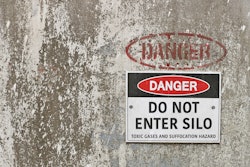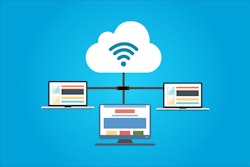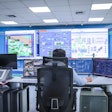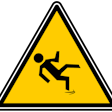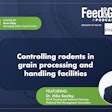
Life is busy! But, are we as busy as we think we are?
Statistics seem to indicate that people today are not necessarily working more, but it sure feels like we are busier and more distracted. So, what gives? According to a recent report by Adobe, the average white-collar worker spends six hours a day on email. And this doesn’t count other online/digital distractions such as social media, text messages, smartphone apps and games. This much time spent on activities that have an urgency to them (but maybe not importance) coming at us all day long, leaves us with less time to focus and zero in on problems or projects which deserve our undivided attention — the problems and projects that are truly important.
Distractions cause a lack of focus or attention on the right things, the important things, which can affect your bottom line.
The need for focus
Thomas Oppong wrote in a recent article for medium.com, “The Distracted Mind (How to Increase Your Attention Span),” that in a world of constant distraction, attention management is the new focus. In today’s environment of relentless information and ways to be distracted, management of our attention needs to become a topic of discussion and likely the impetus for a change of habits.
While many of these distractions (email, text and social media) allow us to feel more connected than ever, there is no question that it is difficult to sift and wade through a flood of information to determine what is essential and actionable. This information can reach you via your smartphone or your computer — anywhere, anytime. It’s no small task to sort the important from the urgent and to unplug and think deeply about an issue.
Possible solutions
Harriet Griffey recently published an article in The Guardian titled “The Lost Art of Concentration: Being Distracted in a Digital World.” She hits on a couple of novel points and has some unique suggestions for dealing with what ex-Apple and Microsoft consultant Linda Stone calls “continuous partial attention.”
Stone states that “by adopting an always-on, anywhere, anytime, anyplace behavior, we exist in a constant state of alertness that scans the world but never really gives our full attention to anything. In the short term, we adapt well to these demands, but in the long term, the stress hormones adrenaline and cortisol create a physiological hyper-alert state that is always scanning for stimuli, provoking a sense of addiction temporarily assuaged by checking in.”
Create time to think
An important part of breaking the “always-on” habit is deciding that you need clear time without distractions to be the manager you want to be. It’s easy to convince ourselves that we must immediately deal with that email, answer that text or return that call.
Unless we consciously commit to carving out time to think, it will never happen.
One idea is to pick a time of day or day during the week where the flood of distractions is not as intense. Block it out on your schedule, commit to using the time for longer-term projects and don’t surrender to the temptation of “checking in.” We have seen some firms do this company-wide — no email on a specific afternoon — to carve out distraction-free time for everyone.
“The Five More Rule”
One-way Griffey suggests extending a person’s focus is to use a simple method to concentrate better called “The Five More Rule.” Whenever you want to move on to something else (i.e., give in to being distracted), just do five more — five more minutes of concentrated work, five more pages of reading or five more exercises. She says not only is it a form of training but also this is a way of getting more accomplished.
Reading for pleasure
Griffey lists reading as a good method for improving concentration and focus. She states that due to our distracted lives, many people have gotten used to skim reading for fast access to information. As a result, folks have lost the ability to concentrate on the demands of a complex plot and more sophisticated vocabulary that books offer, so reading a book for pleasure no longer “works for them.” She recommends reading from an actual book as screens are too reminiscent of skim reading. You should also read long enough to engage your interest fully — at least 30 minutes.
Meditation and focus
Griffey suggests learning how to be more mindful or practicing meditation can help facilitate greater concentration. Part of her technique includes deep breathing exercises and listening to calming music. Griffey also recommends the Calm app — which assists users with meditation, sleep and relaxation.
Exercise and sleep
Exercise engages the brain with the body and requires concentration. It can assist with your ability to focus and allows for better sleep. Being tired due to poor sleep affects concentration. Light from the blue end of the spectrum inhibits sleep, and this is the end of the light spectrum, which many technology gadgets give off. Avoid these devices prior to turning in for the night, and this can improve your sleep cycle.
Delegation
Another method for dealing with “busyness” is to delegate tasks appropriately. Remember, management is the process of getting things done with and through other people. It is sometimes tempting to do it yourself, but delegation done right empowers your employees and frees up your time. Doing it “right” means effectively communicating what you want to be done, making sufficient resources available, monitoring progress and reflecting/debriefing once the assignment is completed. General George S. Patton had a good take on this: “Never tell people how to do things, tell them what to do, and they will surprise you with their ingenuity.”
Live life less distracted
What are some of the solutions to our collective challenge of not being able to focus? We subscribe to the advice to “turn off the triggers.” Notifications of all types significantly reduce your ability to focus. Ways to address this include not placing your smartphone on your desk — leave it in your briefcase or purse. Check it only at certain intervals — say at 10 a.m. and 2 p.m.
This same strategy can be applied to your email. Constant monitoring of email has some of the same characteristics and might benefit from the same plan — check only at certain times rather than continuously.
Life, like your work as a manager in the feed and grain industries, is all about trade-offs. Many of the “distractions” we have discussed above are not necessarily bad. They allow us to communicate, manage and maybe even have fun (in the case of smartphone game apps).
It’s important , however,to be able to focus when needed and “turning off” some of the distractions which compete for our attention can improve your business ... and personal health! ■
About the Authors
Dr. John Foltz is Chair, Department of Animal Sciences, The Ohio State University, Columbus, OH, and Dean Emeritus, College of Agricultural and Life Sciences and Professor Emeritus, University of Idaho, Moscow, ID.
Dr. Akridge is Provost and Executive Vice President for Academic Affairs and Diversity and Professor, Department of Agricultural Economics, Purdue University.


